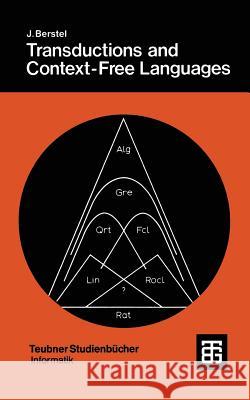Transductions and Context-Free Languages » książka
Transductions and Context-Free Languages
ISBN-13: 9783519023401 / Niemiecki / Miękka / 1979 / 280 str.
This book presents a theory of formal languages with main emphasis on rational transductions and their use for the classification of context-free lan guages. The Ievel of presentation corresponds to that of beginning graduate or advanced undergraduate work. Prerequisites for this book are covered by a "standard" first-semester coursein formallanguages and automata theory: e.g. a knowledge of Chapters 1-3 of Ginsburg 1966], or Chapters 3-4 of Hopcroft and Ullman 1971], or Chapter 2 of Salomaa 1973], or Chap ters 2 and 4 of Becker and Walter 1977] would suffice. The book is self-contained in the sense that complete proofs are given for all theorems stated, except for some basic results explicitly summarized at the beginning of the text. Chapter IV and Chapters V-VIII are independent from each other. The subject matter is divided into two preliminary and six main chapters. The initial two chapters contain a general survey of the "classical" theory of regular and context-free languages with a detailed description of several special languages. Chapter III deals with the general theory of rational transductions, treated in an algebraic fashion along the lines of Eilenberg, and which will be used systematically in subsequent chapters. Chapter N is concerned with the important special case of rational functions, and gives a full treatment of the latest developments, including subsequential transductions, unambiguous trans ducers and decision problems.











